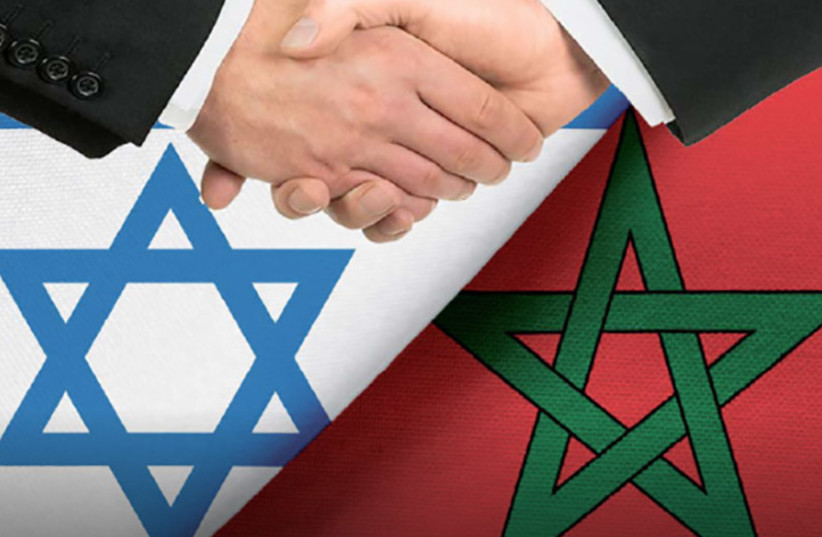Since Israel’s new government was inaugurated late last year, world attention has focused overwhelmingly on its provocative personalities and controversial domestic policies. By contrast, comparatively little time has been spent exploring how the ruling coalition of returning Prime Minister Benjamin Netanyahu might improve Israel’s global position. For Israel, however, the question is an urgent one because it comes amid mounting regional instability, the side effects of Russia’s ongoing war in Ukraine, and sharpening great power competition between Washington and Beijing.
A significant part of the answer can be found in the Abraham Accords. Those normalization agreements, signed in 2020 with the United Arab Emirates, Bahrain, Morocco and Sudan, ushered in a new era of cooperation for Israel in a historically inhospitable Middle East. Two years on, conversations in Jerusalem and many other capitals revolve around how best to build on those bonds.
Widening the accords is one way. Hopes remain high in many quarters that the region’s normalization wave might soon see new participants and the Biden administration, after some initial hesitance, has wholeheartedly endorsed the idea. Indeed, countries like Saudi Arabia, Indonesia and even Pakistan have been floated as potential new partners for Jerusalem.
Upgrade the ties between Jerusalem and Rabat
But before the accords can be broadened, additional steps still need to be taken to strengthen the connections among their existing members. On that score, a great deal can be done, beginning with upgrading the ties between Jerusalem and Rabat.

From the outset, Morocco-Israel relations were among the most promising elements of the unfolding regional rapprochement and for good reason. The connections between the two countries run exceedingly deep. A tenth of Israel’s population of more than 9 million people is estimated to be of Moroccan descent and many of them travel back to the Kingdom regularly.
Moreover, despite the absence of formal political dialogue, the Moroccan government had vibrant, if quiet, contacts with Israel for decades and in the process adopted a range of comparatively progressive policies, such as taking a leading role in promoting education about the Holocaust in the Arab World. Meanwhile, economically, trade between the two countries was flourishing even before normalization.
Since Morocco’s formal entry into the Abraham Accords two years ago, these contacts have become more extensive. Bilateral trade has expanded significantly. Rabat and Jerusalem have established working groups on issues ranging from agriculture to energy and the kingdom has become a significant client of Israel’s defense industry. Meanwhile, on a societal level, the two countries have established direct flights and tourism has ballooned.
POLITICALLY, HOWEVER, ties haven’t yet reached their full potential. Though they have exchanged political personnel and established liaison offices, the two countries still lack the hallmarks of full diplomatic relations.
The reason has everything to do with Western Sahara. The US’s recognition of Moroccan sovereignty over the territory, which the Kingdom has administered since the mid-1970s, was the central reason behind Rabat’s decision to participate in the Abraham Accords, back in 2020. Since then, numerous countries, including Accords members like Bahrain, have recognized Morocco’s claims. Israel, however, still hasn’t.
While individual Israeli officials previously expressed support for the idea, the country’s Foreign Ministry has, so far, stopped short of unequivocally embracing Western Sahara as an integral part of the kingdom.
This amounts to a critical error. For Morocco, the disposition of Western Sahara isn’t simply a governmental project but an issue that sits at the very heart of their national identity. Indeed, many Moroccans have relatives who personally participated in the southward march to liberate the territory from Spanish control, nearly half a century ago. As such, the stance that its international partners take on the Sahara will be viewed by the kingdom as a key metric of the health of those bilateral relationships.
Israel is no exception and how Jerusalem weighs in on Western Sahara is shaping up to be a significant test of its budding partnership with Rabat and a bellwether of how ties will evolve in the future. In turn, a meeting of the minds on the territory would confer tremendous benefits, facilitating greater collaboration between the two countries on issues ranging from food insecurity in Africa to Iran’s inroads into the continent.
Netanyahu, who oversaw the genesis of the accords during his last stint as prime minister, should have a vested interest in solidifying what is arguably his most important foreign policy accomplishment to date. Recognizing Moroccan sovereignty over the Sahara seems like a very good place to start.
The writer is the senior vice president of the American Foreign Policy Council in Washington.
